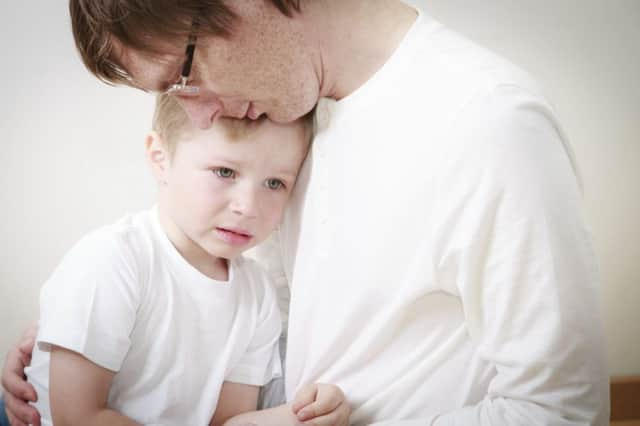Child protection: Adults ‘afraid to comfort kids’


Sir Harry Burns is now calling for an end to a “blanket ban” on comforting youngsters and says child protection chiefs should address this.
The current balance risks jeopardising the younger generation’s development, according to Sir Harry, who is now a professor of global public health at the University of Strathclyde.
Advertisement
Hide AdAdvertisement
Hide AdHis comments come against the backdrop of high-profile sexual abuse cases in the wake of the Jimmy Savile scandal.
Many teachers and carers are now reluctant to touch children because of fears over how they may be perceived, experts have warned.
Children’s campaign groups yesterday backed Sir Harry’s intervention. Social work chiefs admitted there were problems with “public perceptions” of child protection rules.
Sir Harry told MSPs on Holyrood’s health committee that the issue of child protection was a “really, really serious one”.
“We’ve reacted to it in a way that I think dehumanises us,” he said. “Damaging a child in any way to my mind is a really, really serious crime against humanity, but we’re damaging children by not showing them that key empathy as well.
“We need to realise that is a very important part of human development and it’s not something that’s exclusively the province of the parents – it’s the province of other people who show affection for the child.
“When a child is crying and looking for comfort, it’s our responsibility to show them that kind of comfort. The rules and regulations get in the way of us acting like human beings.”
Asked how to deal with this, he said: “I think we need to speak to child protection experts about this – there has to be a better way.”
Advertisement
Hide AdAdvertisement
Hide AdChildren’s Commissioner Tam Baillie warned last year that many professional carers and volunteers were scared to touch a child who was not related to them because of concern over how those actions might be perceived. Social work chiefs in Edinburgh said a child came back from a school trip sun-burned because the teacher was too scared to apply suntan lotion to the youngster’s nose and arms.
Anne Houston, chief executive of charity Children 1st, said: “We agree wholeheartedly with Sir Harry Burns’ comments. Children need to feel loved, wanted and cared for. Physical contact is a key part of that.”
A panel of children’s experts, including the Children’s Commissioner, found last year that touch can be soothing, and questioned why adults have become so wary.
Sandy Riddell, president of the Association of Directors of Social Work, said: “Child protection is not about stopping people from comforting children or engaging with children, it is about protecting children from significant harm.
“The public perception of child protection can be something very different and that can have an effect on how people interact with children. That’s something we must debate together to achieve the right balance.”
SMACKING LAW
Youngsters and their parents would benefit from changing Scotland’s “ambiguous” laws on smacking, children’s campaigners have said.
Jackie Brock, chief executive of Children in Scotland, said the country is “increasingly out of step” with other nations in Europe on the protection offered to children.
Staffan Janson, a Swedish expert on children’s well-being, told how banning smacking in 1979 e first country to do so – had brought about a culture change.